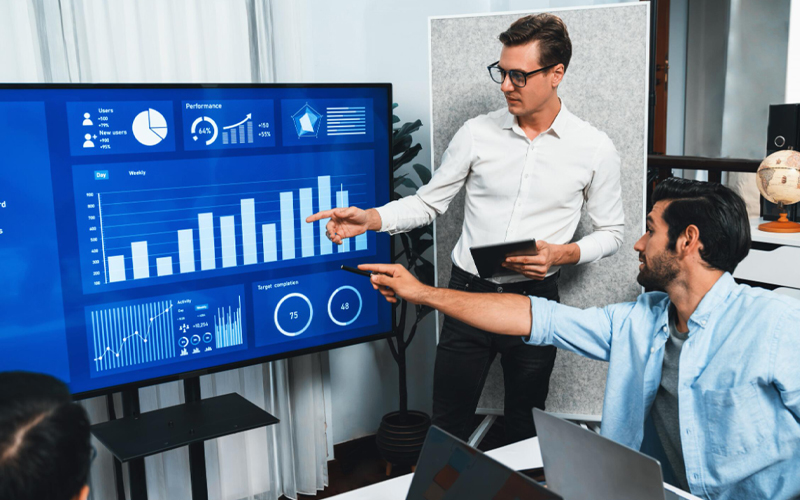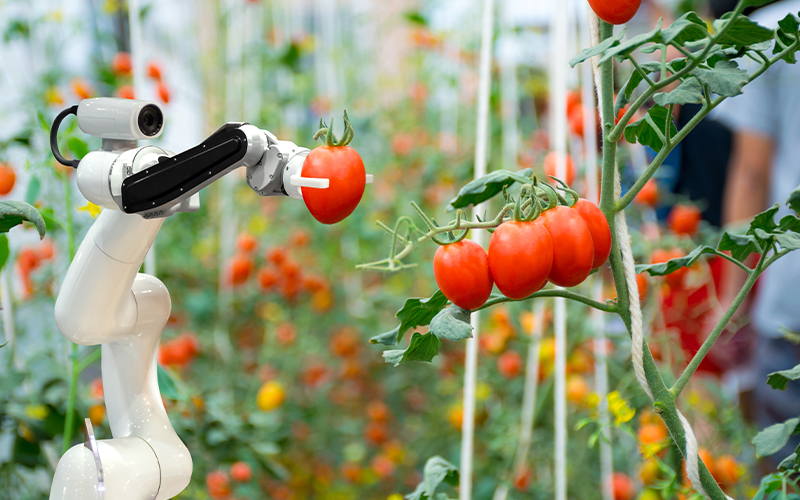The landscape of the restaurant industry is undergoing an interesting transformation that is primarily driven by the integration of emerging technologies. This evolution is not merely a trend but a revolution, setting the stage for an unprecedented dining experience that promises to redefine the very essence of 'eating out'.
Here is a deeper look at these technological advancements and how they are shaping the restaurants of the future.
Adding convenience to mobile dining
Driven by the increasing demand for convenience, speed, and safety, mobile dining is becoming the new norm. Advanced technologies such as food delivery apps have taken this transformation a step further, offering a seamless and personalised dining experience.
These apps do not act merely as intermediaries; they leverage customer data to forecast preferences and tailor menu suggestions. In addition, the tracking features of these apps provide a transparent window into the culinary journey. Customers can watch as their meal transitions from preparation to delivery, fostering a connection with the food they consume and building trust and loyalty on the way.
Revolutionising dining with virtual reality
The conventional concept of dining is undergoing a metamorphosis with the integration of interactive technology in the restaurant business. Dining is progressively evolving into a multisensory experience that aims to not only satiate the palate but also entertain and educate customers at the same time.
Embracing this approach, many restaurants are now adopting virtual reality (VR) to provide diners with a glimpse into the culinary process, the history of the dishes they are about to eat and the array of ingredients that go into their preparation. With this, restaurants aim to not only educate customers about their food but also cultivate trust by being transparent about the safety measures and meticulous research undertaken by the establishment.
Beyond education, restaurants are also increasingly employing VR to create an immersive entertainment experience. Tables functioning as interactive touchscreens for gaming or customers being virtually transported to the vineyards of Tuscany while sipping on fine wine is no longer a futuristic reality.
Enhancing operations with robotics
Robotics, now reigning over all sectors, is another technology that is transforming the restaurant business. By taking over repetitive tasks such as cleaning tables, chopping vegetables and delivering food, robots not only accelerate service but also alleviate the workload on human staff, allowing them to concentrate on enhancing customer service.
Additionally, robots may also be deployed to interact with customers, manage waitlists and escort guests to their tables, adding a unique dimension to the customer experience.
Personalising experiences with AI annotation
As we explore further, artificial intelligence (AI) emerges as a pivotal tool in creating the restaurants of the future. The incorporation of AI technology in the restaurant business can help restaurants analyse customer preferences and optimise menus to cater to individual dietary requirements and taste palates, crafting a more personalised and gratifying dining experience.
AI annotation can also augment operational efficiency by monitoring preparation times and suggesting modifications to enhance service speed and food quality. Furthermore, it can also be used to predict inventory needs based on historical data, current trends and future reservations or events, preventing overstocking and curtailing waste.
Creating smarter kitchens with Internet of Things
The Internet of things (IoT) is another technological frontier revolutionising the restaurant industry. IoT refers to the myriad of physical devices worldwide connected to the internet, sharing data and insights. In restaurants, this technology is particularly beneficial for monitoring kitchen environments, managing inventories and understanding equipment usage patterns. With IoT, operators can monitor appliances in real-time, preventing unnecessary energy waste ensuring a safer, more efficient and sustainable kitchen environment.
The future awaits
The amalgamation of these technologies, coupled with others emerging on the horizon, is set to revolutionise dining into an experience far beyond eating. From enhancing customer experience to streamlining operations, the role of technology in the restaurant business is multifaceted and growing.
However, the journey towards futuristic dining is long and filled with continuous innovation. Restaurants that embrace these changes will redefine what it means to dine out. As we look forward to these exciting developments, one thing is clear: the future looks intriguing, and it is undoubtedly an exciting time for both restaurateurs and diners alike.
How can Infosys BPM help?
Infosys BPM harnesses the power of human intelligence and automation to deliver high-quality training datasets. Our annotation services cater to AI/ML models, enhancing operational efficiency and customer experiences. We provide a hybrid model, seamlessly working across various platforms, ensuring over 98% accuracy and faster delivery with our dedicated annotator pool. With capabilities spanning text, image, audio, video and sensor data, our flexible and scalable services support the evolving needs of the restaurant business, from customer support to sophisticated AI-driven insights.





